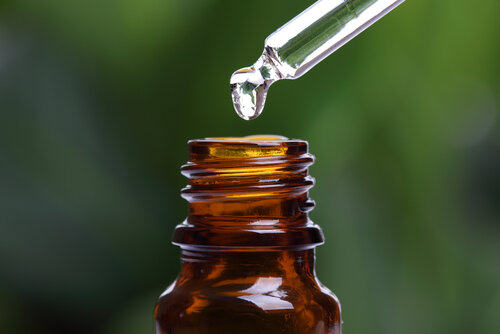
The Role of Aromatherapy in Traditional Systems
Posted by Lee Miller on 2023-03-07
Aromatherapy, which focuses on the use of plant-based materials and essential oils to produce medicinal and aromatic effects, has a long history and an important role to play in traditional systems such as Ayurveda and TCM. While the term "aromatherapy" has been around since the Middle Ages, the knowledge of its use dates back much further to the Ancient Greeks. Similarly, the Chinese have known about the medicinal benefits of plants since the beginning of human civilization.
Ancient Greeks used aromatic plants for medicinal purposes
The use of aromatic plants for medicinal purposes has been known as far back as human history. It was used for both religious and beauty purposes since at least 2000 BC. Many ancient texts describe how to prepare these preparations, as well as how to make medicated and healing oils.
The use of aromatic plants for hygiene and beauty preparations was also popular in the Roman Empire. In ancient Egypt, aromatic oils were used for embalming, as well as for cosmetics and fragrances. They were also burned to honor the gods.
Aromatic plants were believed to protect against the Bubonic Plague. During the 14th century, when the bubonic plague began to spread in Europe, the real value of these plants was recognized.
Ancient Chinese knowledge of medicinal properties of plants
Ayurveda and traditional Chinese medicine are systems of medicines that have been used for thousands of years. However, it is only recently that scientific evidence has been discovered to prove their effectiveness.
It is also interesting to note that these two medicinal systems have similarities in the way they treat diseases and their uses of medicinal plants. As a result, there is a growing demand for these medicinal plants in India.
One of the first modern medicines to be developed was ephedrine, a compound isolated from the Chinese herb mahuang. This drug is currently being used in treating Alzheimer's disease.
Traditional Chinese medicine, or TCM, was first practiced in China nearly two thousand years ago. Its goal is to help prevent and treat disease and improve life quality. In this regard, it is a commendable achievement.
Traditional Chinese medicine believes that Qi circulates throughout the body along pathways called meridians
Traditional Chinese Medicine (TCM) believes that there is an energy called "Qi," which circulates through the body along channels called meridians. A blocked flow of this energy can cause disease.
These meridians are believed to connect the body's organs and regulate the movement of qi in the body. The meridian system is closely connected to the nervous and lymphatic systems. It has been described as a 'living energy channel.'
According to TCM, the body is an energetic whole, and good health depends on the balance of yin and yang. When these energies are out of balance, it can affect the entire organism. This imbalance can occur due to the improper use of food, drinking alcohol, or improper sleep habits.
Acupuncture and acupressure are popular TCM treatments
Acupuncture and acupressure are two of the most popular TCM (Traditional Chinese Medicine) treatments. These therapies are said to help relieve a variety of conditions, from chronic pain to tension headaches. However, before you give them a try, you should first consult a qualified practitioner.
Traditional Chinese Medicine is a holistic healing system that aims to balance the flow of "Qi" or life force in the body. It uses herbs, massage, and nutritional modification to help achieve this.
According to traditional Chinese medical theory, special acupoints are located along the body's energy pathways or meridians. Pressing these points helps free up the "Qi" and brings the body back into balance.
Acupuncture involves the use of fine needles to stimulate certain acupoints. This releases natural painkillers. Some studies have shown that acupuncture can help with headaches, nausea, and chronic pain.
Growth of the aromatherapy market in Europe
Aromatherapy is a popular practice that has numerous health benefits and uses. These include treatment of various disorders like anxiety, wounds, digestion problems, and immune system dysfunction. It can also be used for relaxation.
The aromatherapy market is growing fast in Europe. This is primarily due to the rise in the health-conscious population. In addition, consumers are looking to purchase products that contain natural ingredients. Moreover, the emergence of wellness tourism is another reason for the growth.
Essential oils have several health benefits and are absorbed by the skin. They are also used in various industries, including pharmaceuticals, cosmetics, and dietary supplements. Due to their many benefits, they are a logical choice for the wellness-conscious consumer.
Another driving factor for the aromatherapy market is increasing disposable incomes. This has made it easier for people to afford the use of aromatherapy.